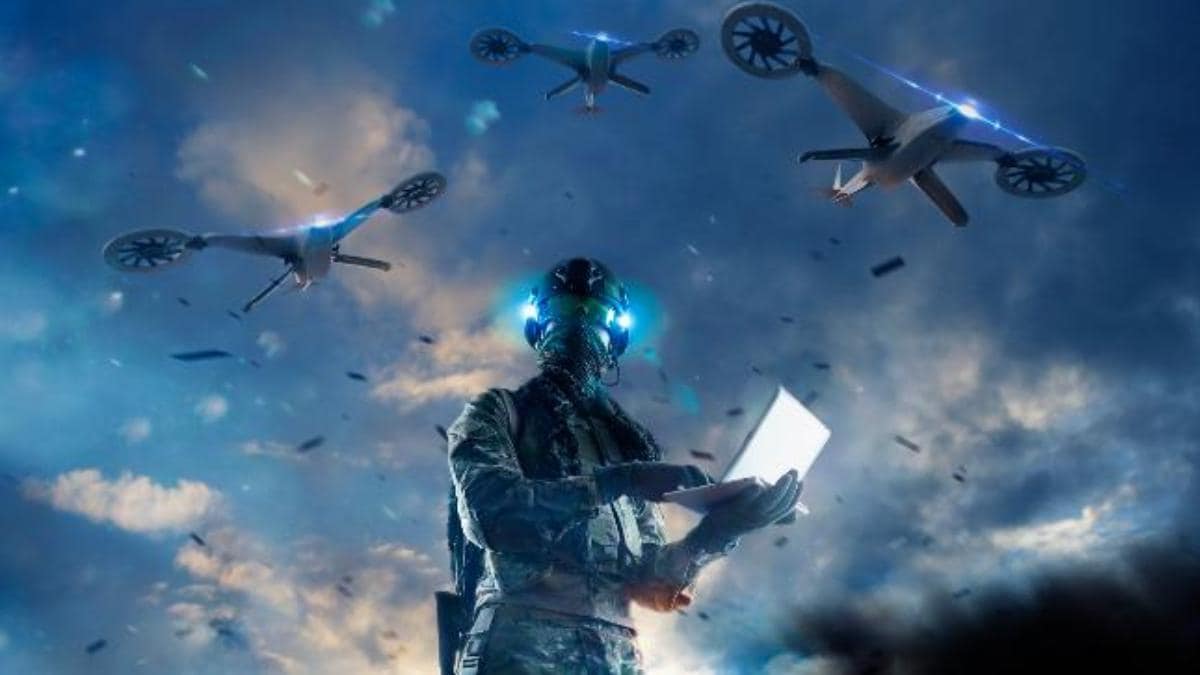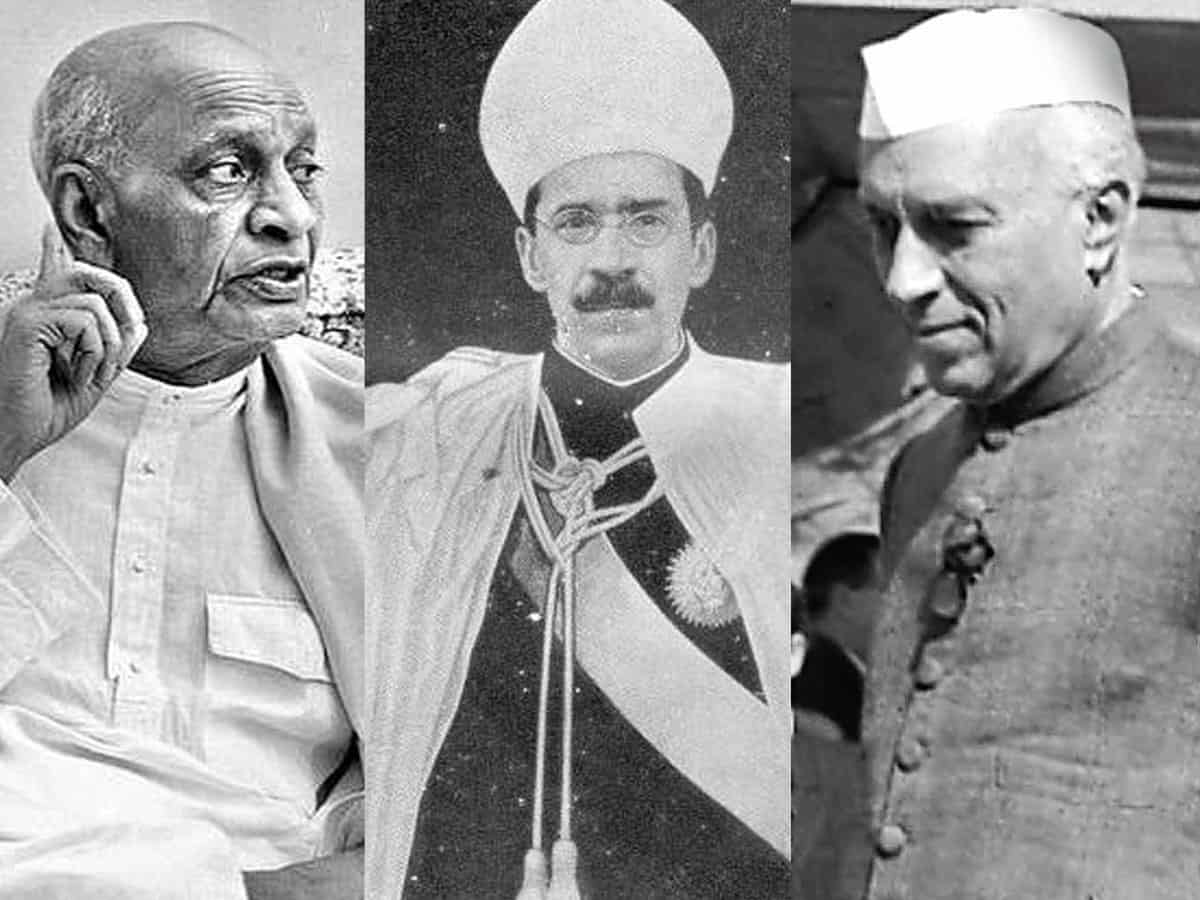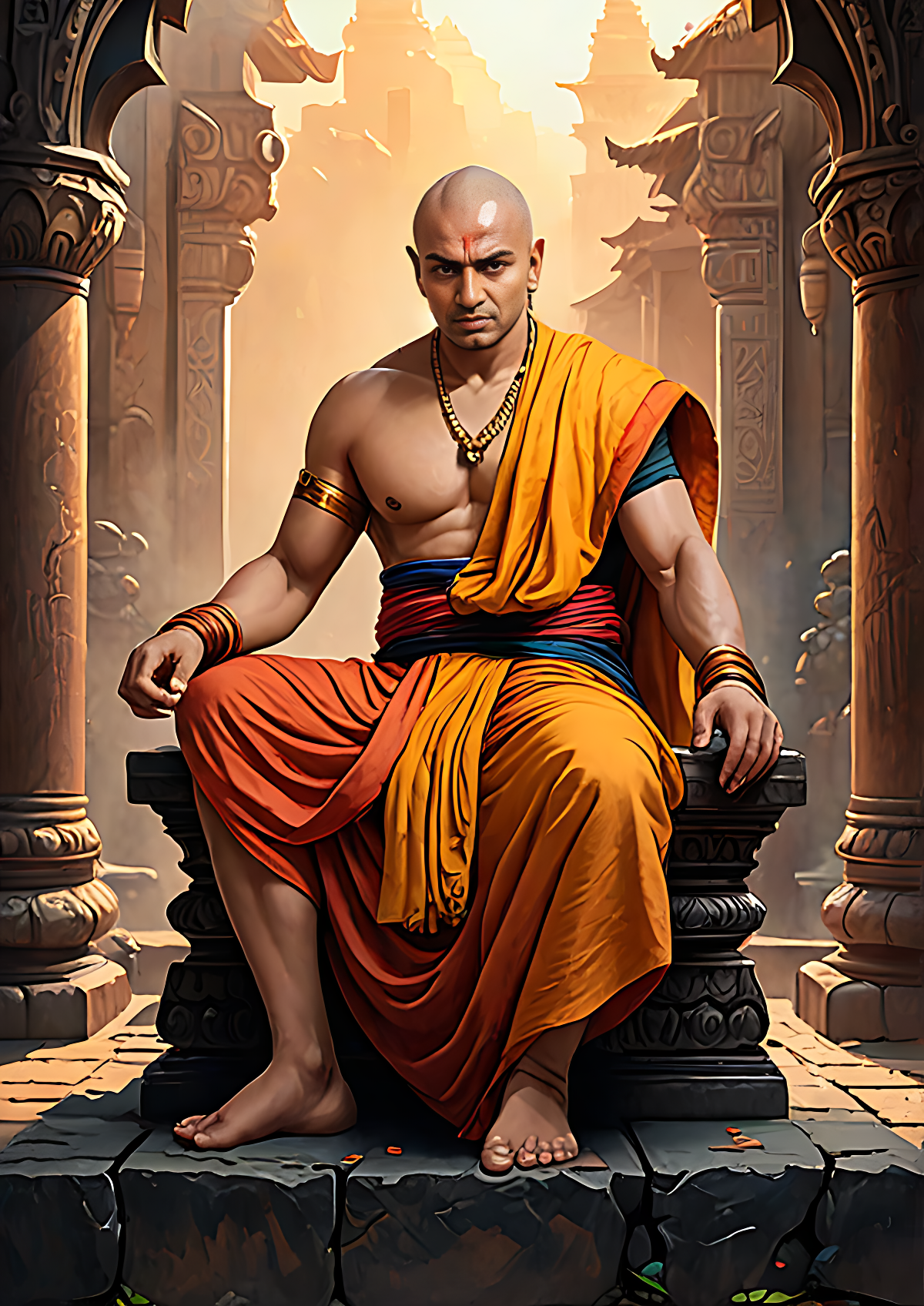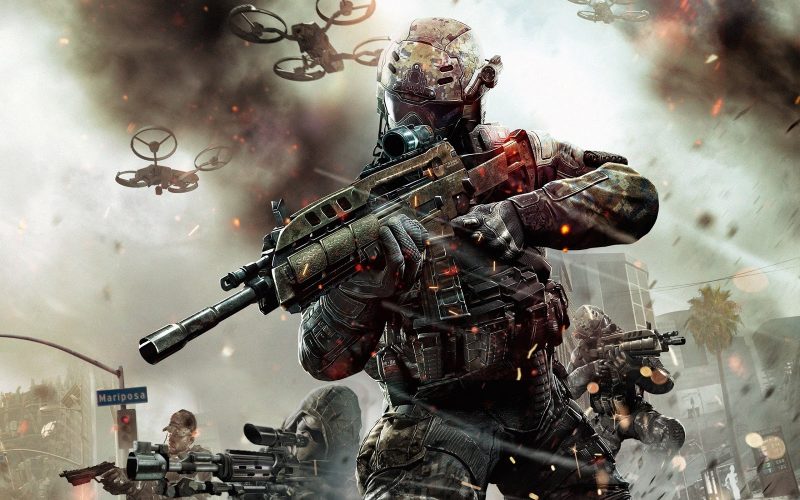
- Introduction
- What is Artificial Intelligence?
- How AI is Used in Modern Warfare
- Advantages of Using AI in Warfare
- Concerns and Challenges of AI in Warfare
- Famous Quotes on AI and Warfare
- How Should AI Be Used in Warfare?
- Examples of AI Use in Warfare
- Conclusion: The Future of AI in Warfare
Introduction
Artificial Intelligence, or AI, is a technology that lets machines think, learn, and make decisions in ways that were once only possible for humans. AI is already changing how we live—it’s in our phones, helping us find information, and even in cars, helping them drive on their own. But AI isn’t just making life easier; it’s also transforming how countries approach war and defense. In the future, AI could play a huge role in warfare, changing how battles are fought, and raising big questions about safety, ethics, and control.
What is Artificial Intelligence?
AI is like a smart brain that helps machines do things we used to think only humans could do, like recognizing faces, playing games, or even having conversations. It works by processing huge amounts of data and learning from it, so it can make decisions. There are different types of AI, like machine learning, where AI learns from examples, and deep learning, which mimics the way our brains work using layers of data to learn complex patterns.
In warfare, AI can be used in many ways, such as controlling drones, detecting enemies, or helping soldiers on the battlefield. AI can work much faster than humans, so it’s useful for analyzing threats and responding to them immediately. But as AI becomes more powerful, we have to think about how it should be used in war.
How AI is Used in Modern Warfare
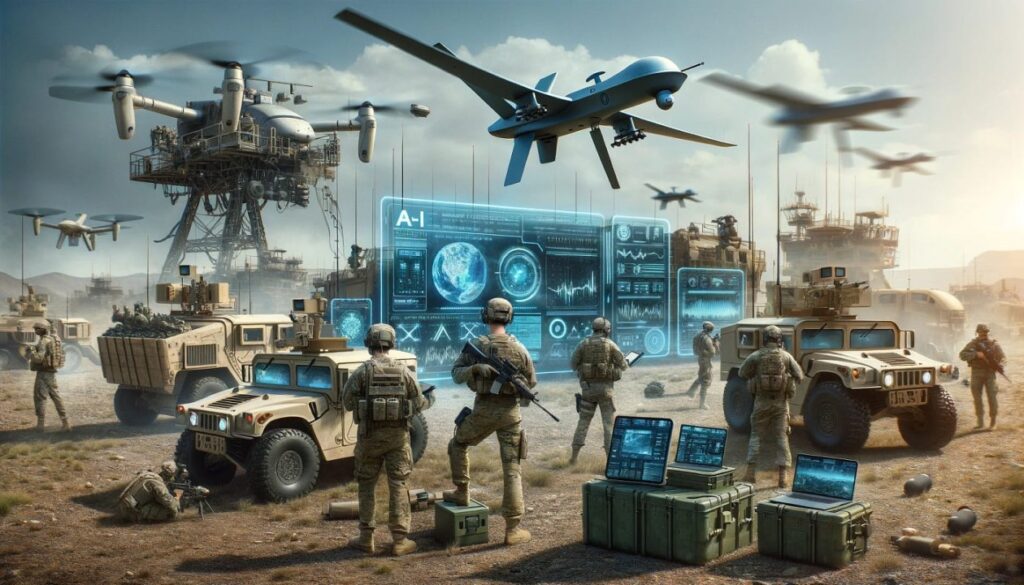
AI is already being used in military technology by several countries. The United States, Russia, China, and others are developing AI-powered systems for their militaries. Here are some examples of how AI is being applied:
- Drones and Robots: One of the most well-known uses of AI in warfare is in drones, which are flying machines that can be used for surveillance or attacks. Some drones are controlled by people, but with AI, they can fly on their own, make decisions, and even locate targets. For example, drones can use AI to recognize certain shapes or heat patterns to find enemy forces. AI robots can also be used to go into dangerous areas, like those filled with landmines, which helps keep human soldiers safe.
- Surveillance and Reconnaissance: AI can analyze huge amounts of video, satellite images, and other data to identify potential threats. It can scan borders, watch for unusual activity, and even help spot hidden enemies. For instance, AI systems might be able to detect enemy movement in a forest by recognizing unusual heat patterns or movements, which might be difficult for human eyes to catch.
- Cyber Warfare: AI is crucial for defending against cyber-attacks, which are attacks on computer systems. AI can detect unusual activity, protect important data, and even identify where an attack is coming from. If a country’s computer networks are under attack, AI can respond much faster than humans, blocking the attack and keeping information safe.
- AI in Decision Making: AI can help military leaders make better decisions by analyzing data from many sources. For example, if there is a natural disaster, AI can help predict where help is needed the most. Or if there is a potential battle, AI can look at different strategies and suggest the best one. However, this raises the question: should humans always have the final say in decisions of war?
Advantages of Using AI in Warfare
There are several reasons why countries are interested in using AI in warfare. Here are some of the main advantages:
- Faster Decisions: AI can process information much faster than humans. In situations where every second counts, like during a missile attack, AI can react immediately. This speed could help save lives by giving soldiers important information in real-time.
- Reduced Risk to Soldiers: By using AI-driven machines like drones or robots, fewer soldiers need to be put in dangerous situations. For example, if a bomb needs to be disarmed, an AI robot can do it instead of a human. This keeps people out of harm’s way.
- Constant Surveillance: AI systems don’t get tired like humans do, so they can monitor an area all the time. This helps keep a constant watch on potential threats, which can make a country feel more secure.
- Improved Accuracy: AI can be very precise, especially with data. When it comes to targeting, AI can help reduce the chances of mistakes, like hitting the wrong target. This is important in warfare, where accuracy can mean the difference between civilian safety and harm.
Concerns and Challenges of AI in Warfare
While AI has many benefits, it also brings big challenges and questions. Some people worry about what will happen if AI becomes too powerful or is used in the wrong way.
- Ethics and Control: One of the biggest concerns is whether it’s ethical to let machines make decisions about life and death. Should an AI-powered drone have the right to decide to attack a target, or should a human always make that decision? This question is important because, unlike humans, AI lacks emotions or empathy.
- Possibility of Errors: AI isn’t perfect, and it can make mistakes. For example, an AI might wrongly identify a civilian as an enemy, which could lead to harm. Such mistakes can be very costly in war, leading to loss of life or even international conflicts.
- Risk of Hacking: Just like any other technology, AI systems can be hacked. If an enemy gains control of AI military systems, they could use them against the original country. This is especially concerning in cyber warfare, where hackers could try to manipulate AI systems to cause chaos.
- Lack of Accountability: If an AI-powered weapon causes harm, who is responsible? The programmer, the military leader, or the machine itself? This is a question that remains unanswered and poses a big challenge in using AI for warfare.
Famous Quotes on AI and Warfare
Several experts and thinkers have shared their views on AI in warfare. Here are some quotes:
- Elon Musk, a technology entrepreneur, once said, “AI doesn’t have to be evil to destroy humanity—if AI has a goal and humanity just happens to be in the way, it will destroy humanity.” This shows the importance of ensuring that AI is controlled carefully.
- Vladimir Putin, the President of Russia, has said, “Whoever becomes the leader in this sphere will become the ruler of the world.” This quote reflects how countries view AI as a powerful tool that could change the balance of power in the world.
How Should AI Be Used in Warfare?
Many experts believe that while AI can be useful in warfare, it must be used responsibly. They suggest that there should be international rules about how AI can be used in war. For example, some people believe there should be a rule that only humans can make life-and-death decisions, not machines.
There are also calls for more transparency. This means that countries should be open about how they use AI in their militaries. By doing this, it can help build trust between countries and prevent misunderstandings.
Examples of AI Use in Warfare
- United States’ Project Maven: This was a project by the U.S. military to use AI to analyze video footage from drones. The AI helped identify objects and people in the footage. However, the project sparked protests, with some employees of Google, the company involved, saying they didn’t want to help make AI for warfare.
- China’s Military Advancements: China has invested a lot in AI technology for its military, using AI for surveillance and in cyber warfare. China’s goal is to become a global leader in AI, which it sees as important for both economic and military power.
- Israel’s Iron Dome: This is a defense system that uses AI to detect and intercept incoming missiles. The Iron Dome is known for its high success rate and has protected civilians from rocket attacks.
Conclusion: The Future of AI in Warfare
AI is becoming a big part of the future of warfare. It has the potential to make battles quicker and more accurate, and to keep soldiers safer by using machines instead of people. But with this power comes responsibility. Countries must think carefully about how to use AI in a way that is safe and ethical.
We may see more international discussions about rules for AI in warfare. The goal is to make sure that AI is used to protect people and prevent harm, rather than create chaos. AI will continue to play a big role in the future, but as it does, the world must be ready to face the challenges it brings.

